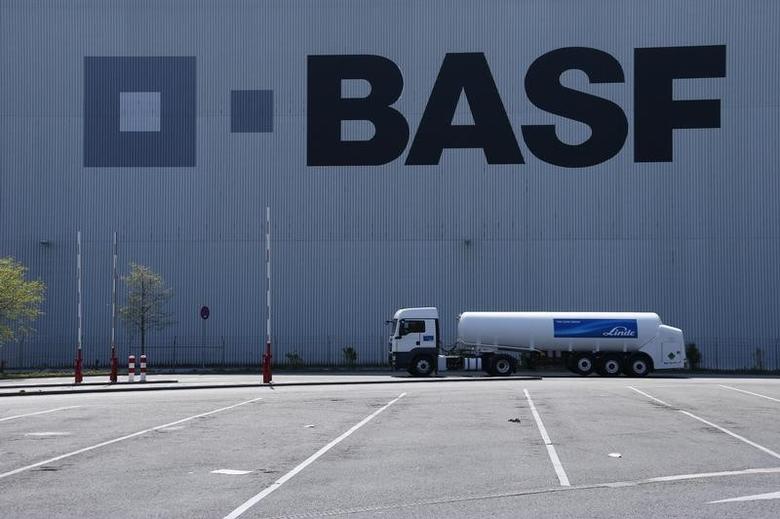BASF Launches Plastic Recycling Blockchain Pilot In British Columbia
A German chemical company, BASF SE, on Thursday, declared the launch of a pilot of its reciChain distributed ledger blockchain platform in British Columbia, Canada, to assist in introducing a sustainable recycling model to decrease the production of plastic waste.
The pilot, conducted by BASF’s Canadian branch BASF Canada, will utilize blockchain technology coupled with digital badges and loop count technology, which can compute the number of products present in a particular volume, to facilitate securely sharing recycling data amidst market participants.
The aim will be to present up-to-date real-time data to enhance the tracing, sorting, and monitoring of plastics during the value chain lifecycle of such products. In conclusion, BASF assumes its integrative supply chain with a recycling solution to build a circular cycle for product utilization rather than a linear “product, consumer, trash” lifecycle.
Also, due to the increased transparency of blockchain technology, brands can employ the platform to offer more assurance of the validity of certificates for materials purchased from recyclers and converters.
“There is a clear global challenge around the economics of recycling plastic,” stated Marcelo Lu, president of BASF Canada.
“Much of the collection and sorting activities are challenged by manual processes and material contamination. Additionally, traceability is a concern as new commitments start to emerge from brand owners and retailers. With reciChain, our goal is to revitalize the value of plastics and significantly improve circularity in the supply chain.”
According to a report from Deloitte for Environment and Climate Change Canada, In 2016, Canada disposed of almost 3.3 million tons of plastic waste. 11% of those plastics were recycled. That indicates the remains were landfilled or otherwise discharged into the environment. The report predicted that if the trend proceeds, Canadians will dispose of $11.1 billion worth of plastic materials each year by 2030.
The platform was piloted in Brazil and was motivated by a need in the market to trade with social inequality issues as well as regulatory concerns concerning the issuance of recycling certificates. With added transparency and the tamper-evident effect of blockchain technology, it provided for the tokenization of the recycling value of plastics, which facilitated businesses and the government to offer more equitable distribution along the supply chain better.
BASF believes that this Canadian pilot, and the pilot in Brazil, will head to more data about the effectiveness of the platform for tracing recycled plastics so that further pilot programs can be initiated in other regions.
“A successful implementation of reciChain will result in a collaborative digital consortium that will bring together plastic manufacturers, suppliers, government entities, retailers, waste collectors and recyclers aimed at keeping the life of plastic molecules circular,” stated Anthony DiPrinzio, head of BASF Blockchain Lab.
The project in Brazil has received the participation of significant Brazilian vital institutions and businesses and will continue to expand in correspondence with the Canadian pilot program.
DiPrinzio argued that blockchain technology would provide what is needed to enable distinct entities in the supply chain to work together to assure that products add to a “circular economy” produced by recycling plastic products.
Stay informed with daily updates from Blockchain Magazine on Google News. Click here to follow us and mark as favorite: [Blockchain Magazine on Google News].
Get Blockchain Insights In Inbox
Stay ahead of the curve with expert analysis and market updates.
latest from tech
Disclaimer: Any post shared by a third-party agency are sponsored and Blockchain Magazine has no views on any such posts. The views and opinions expressed in this post are those of the clients and do not necessarily reflect the official policy or position of Blockchain Magazine. The information provided in this post is for informational purposes only and should not be considered as financial, investment, or professional advice. Blockchain Magazine does not endorse or promote any specific products, services, or companies mentioned in this posts. Readers are encouraged to conduct their own research and consult with a qualified professional before making any financial decisions.

 Bitcoin
Bitcoin  Ethereum
Ethereum  XRP
XRP  Solana
Solana  Tether
Tether  Dogecoin
Dogecoin  USDC
USDC  Cardano
Cardano  Lido Staked Ether
Lido Staked Ether  TRON
TRON  Avalanche
Avalanche  Sui
Sui  Chainlink
Chainlink  Stellar
Stellar  Wrapped Bitcoin
Wrapped Bitcoin  Official Trump
Official Trump  Hedera
Hedera  Wrapped stETH
Wrapped stETH  Toncoin
Toncoin  Shiba Inu
Shiba Inu  Polkadot
Polkadot  WETH
WETH  Bitcoin Cash
Bitcoin Cash  LEO Token
LEO Token  Litecoin
Litecoin  Uniswap
Uniswap  Bitget Token
Bitget Token  Hyperliquid
Hyperliquid  Pepe
Pepe  Wrapped eETH
Wrapped eETH  USDS
USDS  NEAR Protocol
NEAR Protocol  Ethena USDe
Ethena USDe  Aptos
Aptos  Internet Computer
Internet Computer  Aave
Aave  Ondo
Ondo  Monero
Monero  Ethereum Classic
Ethereum Classic  POL (ex-MATIC)
POL (ex-MATIC)  MANTRA
MANTRA  Render
Render  Algorand
Algorand  Dai
Dai  Bittensor
Bittensor  OKB
OKB  Mantle
Mantle  Cronos
Cronos 




